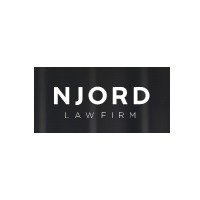Best Job Discrimination Lawyers in Silkeborg
Share your needs with us, get contacted by law firms.
Free. Takes 2 min.
List of the best lawyers in Silkeborg, Denmark
About Job Discrimination Law in Silkeborg, Denmark
In Denmark, job discrimination laws are strictly enforced, aiming to provide equal employment opportunity for all citizens, regardless of personal attributes such as gender, race, religion, age, disability, or sexual orientation. The primary legislative protections against job discrimination in Silkeborg, and Denmark as a whole, are found in the Danish Anti-Discrimination Act and the Equal Treatment Act. These laws work to prevent, address, and rectify any forms of job discrimination.
Why You May Need a Lawyer
It may be necessary to seek the assistance of a lawyer if you believe you have been a victim of job discrimination. This could relate to an unfair hiring process, unjust dismissals, unequal pay, or victimization due to personal attributes. An experienced lawyer will assist in gathering supporting evidence, filing a complaint, and guide you through the legal process. Legal representation is also crucial when negotiating a dispute resolution or appealing against a decision.
Local Laws Overview
The Danish Anti-Discrimination Act prohibits job discrimination based on race, skin color, religion, political orientation, or national or social origin. The Equal Treatment Act specifically guards against discrimination based on gender, age, disability and sexual orientation. Apart from these primary acts, certain labor agreements and industry practices also contribute to creating an inclusive and fair workspace in Denmark. Employers are obligated to take appropriate action against discriminatory practices and may be liable for any discrimination that occurs.
Frequently Asked Questions
1. What constitutes job discrimination?
Job discrimination involves treating employees or potential employees disfavourably due to their personal attributes such as gender, race, religion, age, disability or sexual orientation. It can occur during hiring, termination, promotions, and in determining salary and benefits.
2. How can I file a complaint about job discrimination?
Victims of job discrimination can file a complaint with The Danish Board of Equal Treatment. If you require assistance with filing a complaint, lawyers experienced in dealing with discrimination cases can guide you through the process.
3. What evidence is needed to prove job discrimination?
Evidence may include communication records, witness statements, or any documentation (such as pay records) that demonstrate discriminatory treatment. Lawyers can provide additional advice on what evidence may be supportive in your case.
4. What can I expect if my complaint is upheld?
If your complaint is upheld, sanctions against your employer may include compensation for emotional distress, lost wages and, in some cases, reinstatement to your job position.
5. Can an employer retaliate if a complaint is made?
The law protects employees from retaliation for making a complaint about job discrimination. If retaliation does occur, this can form the basis of a new complaint of unfair treatment.
Additional Resources
Further information about job discrimination can be obtained from The Danish Board of Equal Treatment, The Danish Institute for Human Rights, and The Danish Working Environment Authority. Various non-profit organizations also provide resources and advocacy for those facing job discrimination.
Next Steps
If you believe that you have been subjected to job discrimination, seek legal counsel familiar with discrimination laws to discuss your situation and options. Collect and conserve any relevant evidence as soon as possible. You should also report the issue to your workplace's management or HR department, if appropriate.
Lawzana helps you find the best lawyers and law firms in Silkeborg through a curated and pre-screened list of qualified legal professionals. Our platform offers rankings and detailed profiles of attorneys and law firms, allowing you to compare based on practice areas, including Job Discrimination, experience, and client feedback.
Each profile includes a description of the firm's areas of practice, client reviews, team members and partners, year of establishment, spoken languages, office locations, contact information, social media presence, and any published articles or resources. Most firms on our platform speak English and are experienced in both local and international legal matters.
Get a quote from top-rated law firms in Silkeborg, Denmark — quickly, securely, and without unnecessary hassle.
Disclaimer:
The information provided on this page is for general informational purposes only and does not constitute legal advice. While we strive to ensure the accuracy and relevance of the content, legal information may change over time, and interpretations of the law can vary. You should always consult with a qualified legal professional for advice specific to your situation.
We disclaim all liability for actions taken or not taken based on the content of this page. If you believe any information is incorrect or outdated, please contact us, and we will review and update it where appropriate.








